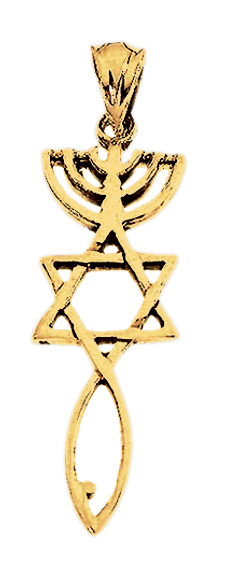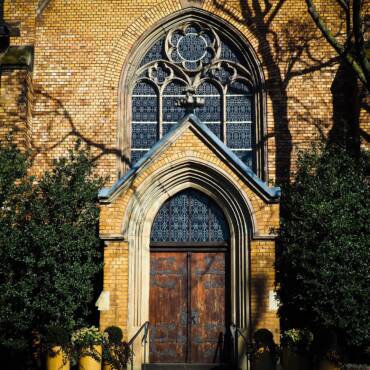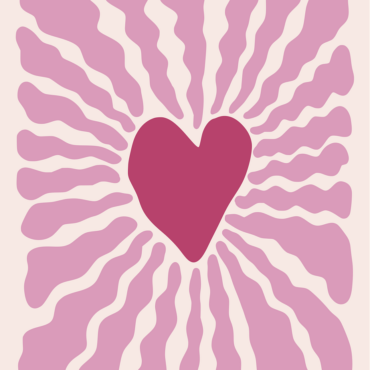New Year, New Life
By Sam Nadler
This year at sundown on Sunday, September 9, Jewish communities around the world will celebrate Rosh HaShanah: The Jewish New Year. The Scriptures tell us the Jewish New Year actually was to begin at Passover in the spring and seven months later the Feast of Trumpets is observed on the first day of the seventh month. So, how did we Jewish people come up with a New Year in the seventh month? Well, we’re creative! But seriously, this idea developed around 2,400 years ago when we came out of Babylonian captivity in the month of “Tishrai,” (a Babylonian word meaning “beginning”), and we adopted the Babylonian civil New Year as our own.
Traditional Observance
Rosh HaShanah introduces the most serious season on the Jewish calendar known as ‘The Days of Awe,’ a 10 day period that leads to Yom Kippur. It’s a time of soul searching, of making things right with God, and with one’s neighbors. Jewish people celebrate Rosh Hashanah through various rituals including traditional foods; greeting one another with “L’shana tovah tikatayvu”, which means, “May you be inscribed (in the Book of Life) for a happy year!”; observing the custom of ‘Tashlich’, a 500 year old tradition practiced by going to the sea shore (or river bank) where participants toss breadcrumbs into the water as prayers are said regarding God’s forgiveness (see Micah 7:19). The central aspect of Rosh Hashanah services is the sounding of the shofar, or ram’s horn. The shofar brings to memory God’s provision of the ram that Abraham sacrificed in place of his only son, Isaac. Biblically, the shofar has more of a future, prophetic perspective. But the Scriptures require more than ritual to obtain forgiveness from God, and as meaningful as tradition may be, a New Year’s celebration may only update last year’s problems and pain.
Ezekiel’s Prophecy
The issue of a New Year should be a New Life. Traditionally, it is seen as the time that your name is written in the “Book of Life” for the coming year. The Bible, though, teaches that the Lord will give the free gift of New Life at any time to all who will come to Him. One day, Israel will nationally receive this new life when they look to Messiah Yeshua (Zech. 12:10), even as we, individually, may receive it now by faith in Him. The prophet Ezekiel reveals the gift of new life that God wants us to have.
Then I will sprinkle clean water on you [Israel], and you will be clean; I will cleanse you from all your filthiness and from your idols. And, I will give you a new heart and put a new spirit within you; and I will remove the heart of stone from your flesh and give you a heart of flesh. I will put My Spirit within you and cause you to walk in My statutes, and you will be careful to observe My ordinances (Ezekiel 36:25-27).
The Plague
It is estimated that 93% of recorded human history is comprised of warfare. That means that on average, less than three days out of the month men have not been trying to kill one another through war. What is wrong with us humans? To simply say “I’m OK, You’re OK”, “You have your own view of reality, and I have mine”, is an attempt to avoid the desperate, wretched condition of the human being. We have left a trail of broken promises, hearts, and lives down through the ages: For all of us have become like one who is unclean, and all our righteous deeds are like a filthy garment; and all of us wither like a leaf, and our iniquities, like the wind, take us away (Isaiah 64:6). So, if one person has a crippling disease it concerns us. If all have that disease we call it a plague, and we’re compelled to find a solution.
The Cure
And I will give you a new heart and put a new spirit within you; and I will remove the heart of stone from your flesh and give you a heart of flesh. David wrote, Wash me thoroughly from my iniquity and cleanse me from my sin (Psalm 51:7). God has provided a cure. Notice in each case the basis is what God can do, provided we are willing to receive His cure. If we confess our sins, He is faithful and righteous to forgive us our sins and to cleanse us from all unrighteousness (1 John 1:9).
Washed Clean
Then I will sprinkle clean water on you, and you will be clean; I will cleanse you from all your filthiness and from all your idols (Ezekiel 36:25). The idea of sprinkling is that of ceremonial recognition of God’s forgiveness. In Isaiah 52:15 Messiah is pictured applying that sprinkling: Let us draw near with a sincere heart in full assurance of faith, having our hearts sprinkled clean from an evil conscience and our bodies washed with pure water (Hebrews 10:22).
So, Who Needs a Bath?
As the story goes, the first bathtub in America brought objections from doctors and politicians, and the local papers denounced it as a “luxurious and democratic vanity.” Doctors warned that the bathtub would be “a menace to health.” The city of Philadelphia issued a public ordinance to prohibit bathing between November 1 and March 15 (that’s a long winter). Today we laugh that some didn’t appreciate the social and health needs of being clean. One day before God, how eternally foolish will people appear who have not appreciated being spiritually clean. There is a generation that are pure in their own eyes, and yet is not washed from their filthiness. (Proverbs 30:12). Who can say, “I have cleansed my heart, I am pure from my sin?” (Proverbs 20:9). The picture of clean water cleansing our sins illustrates the pure cleansing agent of God, which alone can atone for sins: the blood of Messiah. For the life of the flesh is in the blood, and I have given it to you upon the altar to make atonement for your souls; for it is the blood that makes atonement for the soul (Leviticus 17:11). In the Tanakh (OT) animal sacrifices were insufficient for totally removing and cleansing sin permanently; hence they were repeated year after year. So, How much more will the blood of Messiah, who through the eternal Spirit offered Himself without blemish to God, cleanse your conscience from dead works to serve the living God? (Hebrews 9:14).
A Gift of Passion and a New Spirit
“I will give you a [new] heart of flesh” In this context, ‘the heart’ refers to a person’s nature. A stony/hard-hearted person is insensitive to others, and to God. A tenderhearted person will be sensitive to God’s concerns, and care for those around him. Ruach HaKodesh (the Holy Spirit) will empower your life and keep you sensitive to ‘God issues’. God’s Spirit has always been the way God enables His people, and the New Covenant declares that the Spirit of the Living God is available to all who will believe in Messiah. But if the Spirit of Him who raised Yeshua from the dead dwells in you, He who raised Messiah Yeshua from the dead will also give life to your mortal bodies through His Spirit who dwells in you (Romans 8:11).
A Rabbi Should Know
The issue of the necessity of a new heart which Ezekiel raises is the very reality that Messiah brings: the “born again” experience. A Rabbi once came to Yeshua, asking about ‘New Life.’ In response to his questions Yeshua said,”…Do not be amazed that I said to you, “You must be born again.”…Nicodemus answered and said to Him, “How can these things be?” Yeshua answered and said to him, “Are you the teacher of Israel, and do not know these things?…For God so loved the world that He gave His only begotten Son, that whoever believes in Him should not perish but have everlasting life” (John 3:7,9,10,16).
Have a Happy New Year!
Messiah came to bring us cleansing, forgiveness, and a new heart through the ‘born again’ experience that God offers. If you haven’t already, come to Messiah now, and begin a New Life in the New Year!



